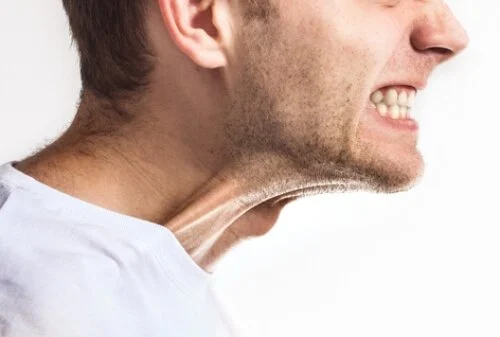
Dr. Sindhu U Muktamath, HOD – Dental Science, Aster Whitefield Hospital, Bengaluru
Bruxism, or the habit of grinding one’s teeth, is more prevalent than most might appreciate. Most of the time this condition is caused due to excessive stress and anxiety that tires out one’s teeth, gets jaw aches, and causes headaches in the morning. Anyone can develop bruxism, but it is more common in adults under chronic stress or living unhealthy lifestyles. Another set of people with teeth malocclusions due to sleep apnoea, are also not spared. For some, it is the temple tension that betrays their bruxism while for some, it is the nighttime age-old tune of “grinding” that gets recognized usually by a partner. It doesn’t matter what the reason for bruxism is: nervousness, stress, anxiety, or even teeth misalignment, this bed habit if untreated can create very serious problems in the future especially for the teeth, due to enamel wear.
The good news is that respite from this ailment lies in effective remediation so a healthy and beaming smile is not evasive. There is no doubt that stress is one of the chief aggravating or key triggers for clenching and especially grinding of teeth and jaws including during night. That said, one could claim that stress management ought to be part of the solution: relaxation techniques such as meditation, yoga and even simple deep breathing should be practiced on a daily basis. Such measures maybe, and even quite valid to help reduce stress levels and as a result, the frequency of bruxism might lower to the extent of even total cessation.
Stress-related teeth grinding is a particular problem that may be addressed effectively through Cognitive Behavioral Therapy (CBT). Through CBT it is possible for individuals to identify triggers which cause bruxism and develop healthier coping mechanisms. For instance, if one is highly anxious then there are strategies which CBT can employ in order to manage this anxiety hence reducing how often and severely one grinds his/her teeth.
For people who clench or grind their teeth during the night dental night guards are often recommended. These devices are tailored to fit an individual person’s mouth and act as shields against further wear. While night guards protect your teeth from damage it also relieves symptoms like migraines, jaw pain and tightness in the muscles. A night guard worn during sleep may help to save teeth from the harmful effects of bruxism. Some cases may require medication for relief of bruxism signs. Jaw muscles tension can be reduced by muscle relaxants while antianxiety drugs are used in order to minimize anxiety that causes clenching jaw joint disorder (bruxism).
Teeth grinding may also be caused by malocclusion or malpositioning teeth so that they do not meet properly when one chews or bites food. This misalignment can create pressure points that lead to grinding. In such cases, dental correction such as orthodontic treatment may be necessary. By realigning the teeth, this will reduce pressure and tension resulting in relief from grinding which would in turn relieve symptoms and stop further damage on their dentition.
There are several lifestyle changes that can be useful in managing teeth grinding. For instance, reducing your caffeine and alcohol consumption (especially before going to bed) can decrease the likelihood of sleep bruxism. Also, avoid habits such as biting on pencils or pens. If you smoke, quitting may help as it increases the chances of bruxism occurrence.
Self-Care Practices
Apart from these treatments, there are a few things you can do at home to help manage bruxism. These include:
•Jaw Muscles: Stretching the jaw muscles, and exercises can relieve tension in the jaw muscles specifically associated with teeth grinding. Make sure to consult your dentist or physician before trying any specific mouth workouts.
• The heat compresses: Soothing warm compress placed on the jaw muscles helps them relax and reduce muscle tensions that trigger teeth grinding.
• Eating Considerations: Refrain from hard or chewy foods that put stress on your teeth and also minimize signs of grinding.
• Sleep Hygiene: Establishing good sleep habits like ensuring sufficient rest, avoiding alcohol and caffeine will help reduce nocturnal bruxism.
• Regular dental checkups: By making regular visits to your dentist, the early stage of bruxism can be detected thus saving further damage to your teeth. Additionally, a dentist can evaluate if your treatment strategies are working or require changes.
While there is no cure for tooth grinding, but it can be effectively managed through various therapies. There are numerous ways to treat this condition such as stress-reduction techniques, Cognitive Behavioral Therapy (CBT), dental night guards, medications and dentistry correction among others. Nevertheless, it is crucial to work closely with your healthcare provider or dentist who will advise you on the best treatment option for you. Alternatively, self-care practices e.g., jaw exercises; warm compresses; and maintaining good sleep habits could alleviate bruxism effects in one’s life.
—




